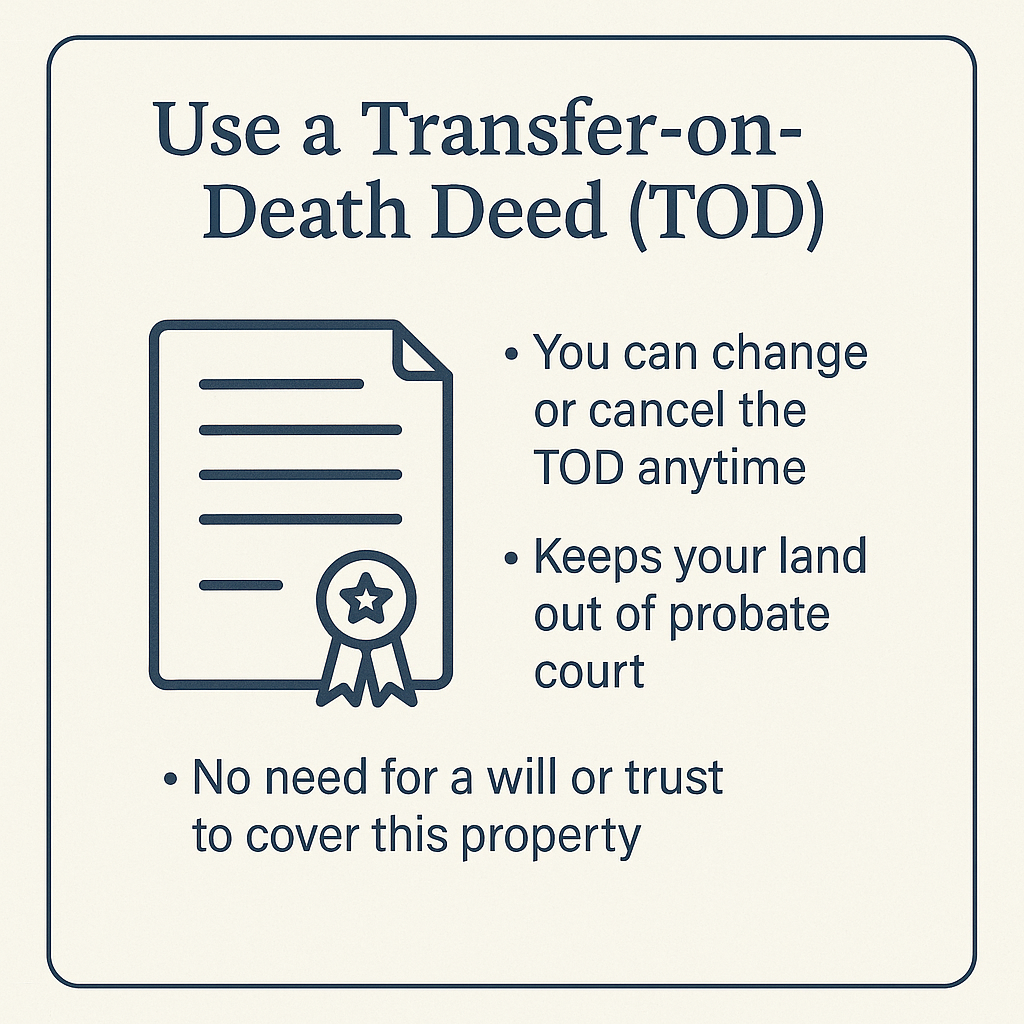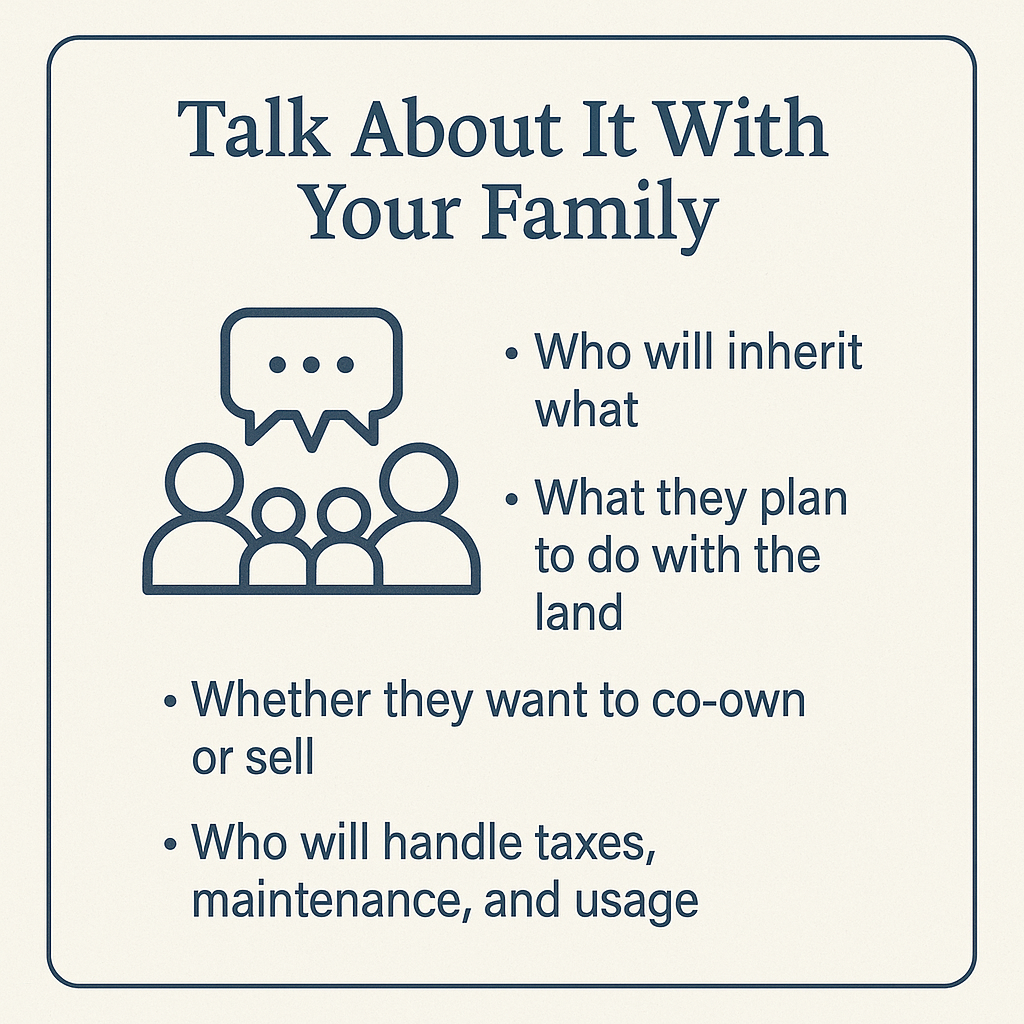How to Pass Your Utah Land Down to Your Kids Without a Headache
Please note, this blog post is purely informational.
Why Plan Ahead?
Utah landowners often buy acreage with the intention of keeping it in the family. But without a clear plan, transferring ownership after death can lead to delays, disputes, and unexpected costs. The good news? There are ways to keep it simple.
If you own land in Duchesne, Fruitland, or anywhere else in rural Utah, these steps can help you pass it on smoothly—without court battles or family stress.
1. Add Your Children to the Deed
One option is to add your child’s name to the deed while you’re still alive. This creates joint ownership with “rights of survivorship,” which means the land automatically goes to them when you pass away—no probate required.
But be careful. Adding someone to your deed:
Gives them legal ownership immediately
Could trigger gift taxes depending on value
Might expose your land to their debts or divorce
Only use this method if you fully trust the person and understand the risks.
2. Use a Transfer-on-Death Deed (TOD)
Utah allows transfer-on-death deeds, which let you name a beneficiary without giving up control of the land during your lifetime. After your death, the land passes directly to your named heir—bypassing probate.
Benefits include:
You can change or cancel the TOD anytime
Keeps your land out of probate court
No need for a will or trust to cover this property
It’s one of the easiest ways to pass down rural land, especially if you only have one child or a clear plan.
3. Create a Living Trust
For more complex estates—or if you want to leave land to multiple children—a revocable living trust is a smart move. You transfer the property into the trust, name your beneficiaries, and avoid probate altogether.
A trust gives you:
Control during your life (you can sell or update terms)
Avoids public records or court oversight
Easier to handle if you become incapacitated
Trusts do cost more up front (around $1,000–$2,000 to set up with an attorney), but they offer flexibility and protection long-term.
4. Avoiding Probate: Why It Matters
Probate is the legal process of settling your estate when you die. In Utah, it can take several months to a year—and rack up costs in court and attorney fees.
Avoiding probate:
Saves time and money
Keeps your property transfer private
Reduces family conflict
Probate isn’t always terrible, but it’s often unnecessary when dealing with raw land. That’s why many landowners use trusts or TOD deeds instead.
5. Talk About It With Your Family
Even if you have everything legally documented, confusion can still create headaches. Talk with your kids now about:
Who will inherit what
What they plan to do with the land
Whether they want to co-own or sell
Who will handle taxes, maintenance, and usage
Clear communication can prevent misunderstandings—and make sure your land stays in the family the way you intended.
6. Don’t Forget Property Taxes and Greenbelt
Your kids will need to keep up with property taxes to retain ownership. If your land is on Greenbelt, make sure they reapply or continue to meet the agricultural use requirement.
Learn more here: 👉 How Utah’s Greenbelt Program Saves Landowners Thousands
Final Thoughts: Keep It Simple, But Make It Legal
Whether you own 5 acres near Starvation Reservoir or a larger off-grid parcel, passing your land to the next generation doesn’t have to be complicated. A little planning now saves a lot of hassle later.
Own Land You Can Keep in the Family
At Mountains West Ranches, many of our buyers are planning for long-term use—whether it’s to build now or pass on later. All our properties come with simple financing, no credit checks, and are perfect for families who want to invest in something lasting.
👉 See available family-friendly properties here
👉 Talk to a land specialist about long-term land ownership ›


